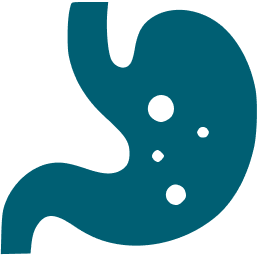Physician Payment for Treatments in Medicare Part B
How the system works and why sustainable reimbursement is essential for delivering complex, life-saving treatments.
What is Medicare Part B
Medicare Part B is a critical part of the broader Medicare program, providing access to physician-supervised care and life-saving treatments for some the most vulnerable Americans.
Part B covers outpatient medical services and nearly 600 physician-administered medicines, delivered in doctors’ offices, hospital outpatient departments, dialysis centers, or even in patients’ homes.
These treatments often require:
-
Specialty medications are often large, temperature-sensitive molecules that can lose their potency or become harmful if exposed to temperature fluctuations.
Provider offices and healthcare facilities use manual or electronic temperature and humidity monitoring devices to ensure strict storage conditions are maintained.
-
Different specialty medications require different temperature controls including:
Room temperature (59°F and 77°F)
Refrigeration (36°F and 46°F)
Frozen including ultra cold below -4°F or cryogenic below -112°F
-
Specialty medications require safe handling, preparation and administration for different modalities, such as intravenous (IV), intramuscular, or subcutaneous injection.
Dome medications also need specific safety protocols for high-alert or hazardous materials. Medical professionals have additional training on how to properly and safely administer these treatments to patients.
How it works
Medicare Part B is designed to ensure timely, physician-administered treatments for patients.
Providers are required to purchase and store medications in advance, often at significant cost, before receiving reimbursement from Medicare after treatment is delivered.
-
01.
Providers purchase and store medication in advance.
Because of the specialized nature of Part B treatments, healthcare providers are responsible for purchasing and storing these medicines at their practices.

-
02.
Patients receive timely, physician-administered treatments.
This ensures patients can receive care quickly, without delays caused by pharmacy coordination or supply issues.

-
03.
Medicare reimburses providers after treatment is delivered.
After treatment, Medicare reimburses providers at a market-based rate that helps cover the cost of purchasing, storing, and managing complex medications.

The challenge
Over time, however, the Medicare reimbursement rate has been gradually eroded.
While many providers continue to deliver high-quality care, smaller and rural practices are increasingly strained, making it harder to stock necessary treatments and serve patients in their communities.
The Impact of a broken system
Without Medicare Part B, many patients living with cancer, autoimmune diseases, and other serious conditions would lose access to the timely, personalized care they depend on.
These conditions include:
The fight to protect Part B
The future of Medicare Part B depends on informed voices, active supporters, and smart policy decisions.
Whether you’re a healthcare provider, patient advocate, policymaker, or concerned citizen—your voice matters.







